How do you solve a problem like the seagulls?
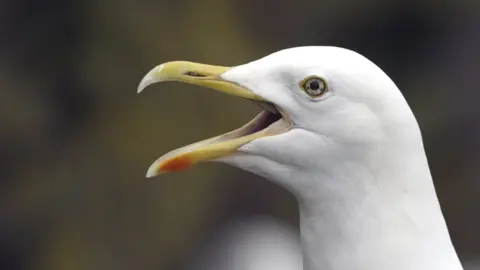 Getty Images
Getty ImagesThe nuisance and mess caused by urban seagulls has been well documented.
Among their most recent targets were Scottish Championship football club Queen of the South, who issued a plea to fans not to feed the birds in a bid to tackle the problem.
But how did we get here and what can you do if, like the Dumfries team, you are having a bit of bother with the birds?
No longer beside the seaside
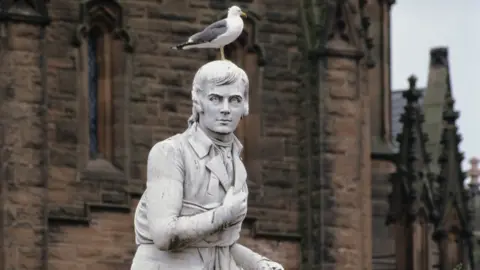
According to the RSPB, herring and lesser black-backed gulls using rooftops for nesting goes back as far as the 1940s.
Why they left their traditional seaside environment is less clear but abundant inland sources of food and safe, predator-free nesting sites on rooftops were "definite factors".
An increasingly "throw-away" society gave the gulls greater access to food sources, helping populations to grow.
And there, said RSPB Scotland, lies the most straightforward solution to tackling the problem.
"The most effective measure to discourage seagulls nesting in urban areas is to reduce access to food and the attractiveness of nest-sites," explained a spokeswoman.
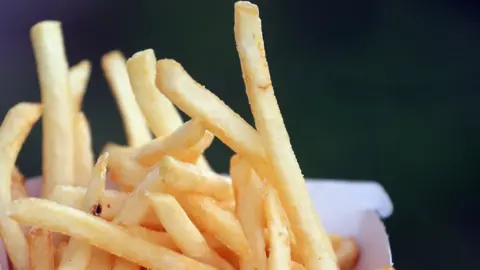 Getty Images
Getty ImagesGo fly a kite?
However, there are other options - even including using bird of prey kites - but how well do they work?
"It is important to point out that no deterrent is always 100% effective, and more than one gadget is sometimes needed for the desired effect," said the RSPB Scotland spokeswoman.
"RSPB has not tested gull deterrents and as such we cannot recommend any in particular.
"A deterrent must not prevent a bird access to an active nest, or trap a bird or injure it," she added.
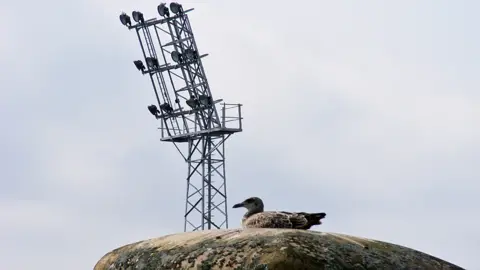
Indeed, she stressed that the birds enjoyed protection which adds to the difficulty of dealing with them once they become an issue.
"All gulls are protected in the UK under the Wildlife and Countryside Act 1981," she said.
"But the law also recognises that control measures may be necessary under certain conditions when non-lethal methods have been exhausted and are unable to resolve human conflict."
At that point, permission to kill the birds could be given.
A licence to cull?
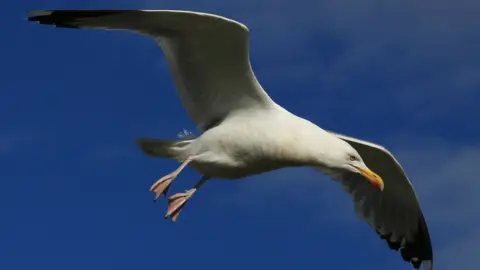 Getty Images
Getty Images"General licences can be issued to prevent serious damage to agriculture and disease spread and to preserve public health and safety, or to conserve other wild birds," she explained.
"Nuisance or damage to property are not legitimate reasons for gull control."
Scottish Natural Heritage said there were two main ways for a local authority to control gulls.
"Exclusion is one - stopping the use of nests or using bird spikes - and the other is removal of nests with eggs," said a spokeswoman.
"In some cases, some types of gulls can be culled, but only under licence and only as a last resort when public health is at risk and all other options have been attempted."
Send in the falcons?
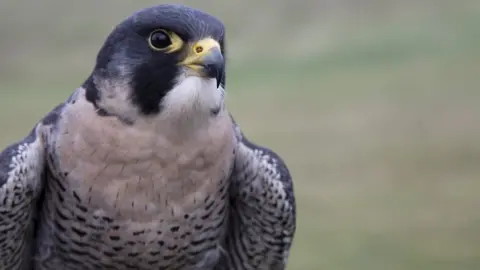 Getty Images
Getty ImagesDumfries and Galloway Council is one local authority that already offers a free egg and nest removal system.
Indeed, it has been something of a leader in field, with Dumfries having hosted a national "gull summit" back in 2008.
The following year an egg removal scheme was offered free of charge in the area for the first time.
It has been credited with driving numbers down - particularly in the town centre.
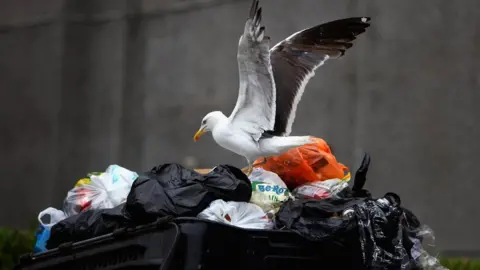 Getty Images
Getty ImagesHowever, problems with the birds have continued including:
- Direct stealing of food from people's hands
- Swooping and dive-bombing to protect chicks
- Noise issues, particularly at first light in residential areas
- Mess on cars, buildings, washing, footpaths and people
- Litter caused by refuse bags being ripped open
A number of different methods to tackle the problem have been tried out over the years in addition to the egg and nest removal.
Falcons once flew in the skies over the town in a bid to deter roof-nesting gulls but it was deemed only a "partial success".
The installation of water sprayers on buildings was unsuccessful as infra-red sensors lost effectiveness in the summer.
Special "gull proof" bin bags have also been offered to businesses.
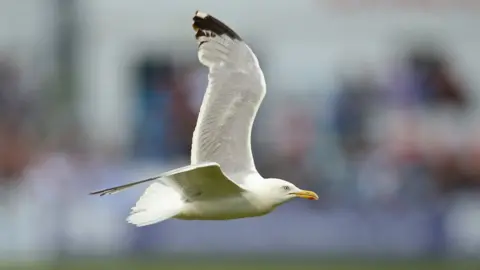 Getty Images
Getty ImagesHowever, the local authority has repeatedly urged the public to help play its part in keeping the birds at bay.
New signs were put up in 2017 in a bid to stop feeding of the gulls and community safety officers also tried to discourage people from giving them food.
A similar plea from Queen of the South - not to give the birds a half-time pie or chips - has appeared to help tackle their problems too.
In that way, perhaps, the Scottish football club might get more media coverage for its on-the-field exploits in future rather than having to rely on its feathered friends.
